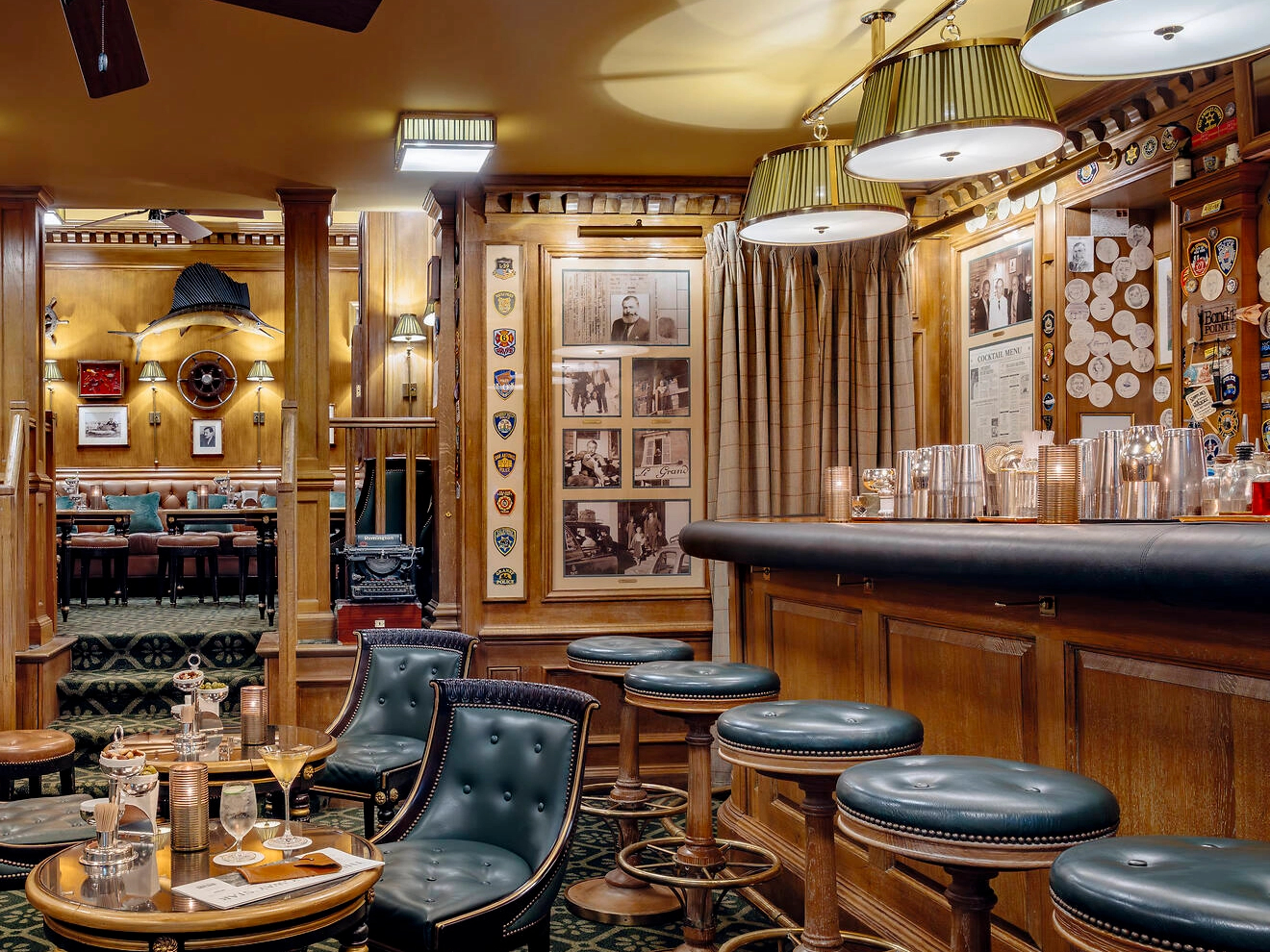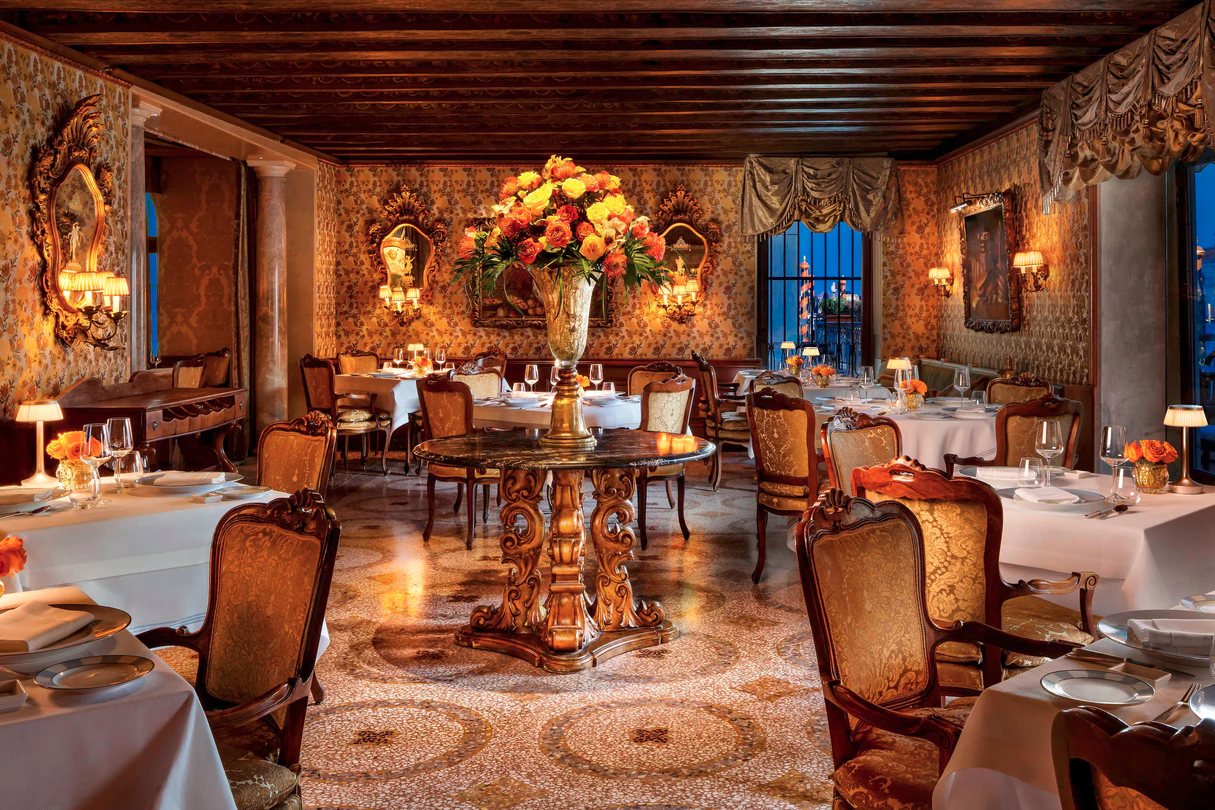Picture the scene: the gleaming surface of the check-in counter, the muffled conversations of fellow guests, and the watchful eyes of the hotel staff anticipating the arrival of their patrons.
In the hotel lobby, a distinctive ballet unfolds—a choreography of first impressions.
A newcomer seamlessly navigates the check-in process, moving with a grace so subtle that it teeters on the brink of imperceptibility. As the pen hovers over the guestbook and keys magically materialize like symbols of entry to a clandestine realm, it’s the tranquility of their demeanour that leaves a lasting impression.
The perfect hotel guest has arrived.
Concierge connection
Hotel staff must surely cringe at the prospect of guests arriving with an inflated sense of entitlement. The cacophony of loud demands and rudeness, paired with extravagant requests, must offer a great challenge to their professional decorum.
While he doesn’t feign the impression of long-lost friendships, our guest understands the power of friendliness. Politeness, after all, opens doors. Hotel staff, often the custodians of local insights, readily extend their assistance when met with courtesy. Engaging in conversations with seasoned staff can unveil hidden gems within the area, turning a routine stay into a personalized experience.
For porters and night porters stationed at the entrance, a simple ‘hello’ and a genuine ‘thank you’ go a long way. Our ideal guest strikes a balance—neither aloof nor overly demanding, always maintaining a polite demeanor. He acknowledges the staff without expecting them to be at his beck and call, creating an atmosphere of mutual respect.
Consider the importance of hotel uniforms; they are not just about visual cohesion. Uniforms serve as a dress code, subtly signaling the roles of each staff member and distinguishing them from visitors. From the top hats of porters to the pristine white jackets of waiters, these uniforms create a visual language that sets the tone for the expected quality of service.
Bedroom antics
As our guest enters the bedroom, certain expectations come to the forefront: a meticulously designed space, cleanliness, and a serene ambiance with pleasant, subtle lighting—not a glaring imposition on the senses.
Lighting, a silent architect of mood, shapes the atmosphere of any room. There’s nothing more disheartening than the stark choice between a poorly lit space and the discomfort of a room with no design beyond utilitarian, high-wattage ceiling lights.
In this carefully crafted environment, the perfect guest embarks on the ritual of unpacking, mindful not to disrupt the room’s order. Clothes find their designated places, and the suitcase is discreetly stowed away.
“To define is to limit,” as Oscar Wilde wisely claimed. Within the confines of the hotel room, our ideal guest recognizes the power of defining their experience. They unplug the television to keep out the vulgar and mundane, part the curtains to invite in natural light, and, where practical, forsake artificial air conditioning for the fresh breeze and ambient sounds of the streets. The perfect guest asserts their claim to the space.
But what might accompany our guest in this sanctuary? A notepad and pen on the bedside table, encouraging moments of reflection and the capture of fleeting thoughts, perhaps even the blueprint for a successful coup d’etat or the design of a resplendent fountain. These ideas are too precious to escape. Alongside the notepad, a historical book or literature tied to the local area adds a touch of connection.
And what about sustenance? Excellent chocolate crafted from the criollo bean often makes perfect sense. Minibars in hotels, more often than not, lack decent snacks. A bar of fine chocolate provides a delightful companion to a post-exploration coffee and brandy in the comfort of the room.
Room service
The tradition of formalized room service dining, now a standard hotel amenity, traces its roots back to the 19th century. As grand hotels flourished in major European cities, they aimed to offer an unparalleled level of service to their affluent clientele. Room service emerged as a means to provide a personalized dining experience, allowing guests to savour meals in the privacy and comfort of their rooms. In an era where dressing for dinner was commonplace, guests maintained a sense of formality even within their quarters.
There’s an undeniable charm in the carefully arranged presentation of room service dishes—an indulgent treat that transcends the ordinary.
However, it’s worth noting that the options from room service might not always mirror the full spectrum of the restaurant’s offerings. Unless your hotel caters to every culinary whim, choices could be limited to staples like a BLT or pizza. Here, room service becomes a delicate balancing act, contingent on the food and the occasion. Devouring pizza solo in your bed is a diminishing act, while relishing oysters and champagne with a delightful companion, away from prying eyes, is an elevating experience.
This brings us to a crucial point: our perfect hotel guest is discerning. They comprehend that certain foods are better suited for the dining ambiance of a restaurant, avoiding selections that are messy or pungent, mindful of the hotel room’s sanctity. Instead of leaving dishes outside the door like a savage, our guest, by default, opts for the restaurant experience to fully savour the pleasurable rituals of dining. Only when necessity dictates does he choose to dine in his room, ensuring that once finished, a courteous request ensures the swift removal of dishes.
At the bar
At the bar, conversation should mirror the refinement of spirits poured into crystal tumblers—quiet, whispered, and a matter of personal taste—where no other tables need to bear witness. While Americans were once the raucous patrons, now British accents more often carry the same inconsequential whines and boastful echoes. Don’t they know that their every interaction speaks for their nation and their people?
For our guest, a loud voice is as jarring as a misplaced note. He will move and move again to avoid it.

Naturally, our guest arrives at the bar with fixed ideas about his preferred drinks. Before dinner, it’s a Negroni; post-dinner, a Brandy Alexander. Wine accompanies meals, and for social occasions, he leans towards whisky in winter and a crisp gin and tonic in summer. Yet, the perfect guest respects the talented bartender and remains open to diversifying his choices if presented with something fresh and intriguing.
In the spirit of tradition, the perfect guest supports the signature cocktail—a nod to the unique identity of a hotel and a chance to explore flavors synonymous with the venue. At Harry’s Bar in Venice, it’s the Bellini, a Prosecco and peach puree concoction. Sipping on his gin and tonic in a navy blazer, the Bellini revives female companions wilting from a day on the lagoon. In the historic Raffles Hotel in Singapore, the Singapore Sling reigns supreme—a gin-based creation embodying the hotel’s colonial elegance.
As you embark on your travels, consider these signature cocktails:
- Serendipity: In Paris in springtime, try a Serendipity at The Ritz—a refreshing blend of calvados, mint, champagne, and apple juice, born in 1994 but well-balanced in the tradition of the greats.
- Manhattan: Anytime you find yourself in New York, savor a Manhattan at the Waldorf Astoria or Bemelmans Bar in The Carlyle. This classic cocktail, with infinte variations, has bourbon, red vermouth, and bitters at its heart.
- Dry Martini: At the Fumoir in Claridge’s Hotel, London, relish their take on the Dry Martini. Remember, the essence of martinis lies in enjoying it your way—never be afraid to go off-piste when ordering cocktails. After all, you like what you like.
Dining finely
Is there anything more disheartening than witnessing slovenly dressed and uncouth diners tarnishing the elegance of a beautiful dining room? For our perfect guest, it’s not just about attire; it’s a matter of respect. If a diner disregards dress etiquette, what other discourtesies might follow? Bags dumped on the floor, incessant phone use—the waiters may feign ignorance, but our discerning guest takes note. To preserve the ambiance for himself, he strategically selects a table far from such distractions.
Out of respect for the surroundings, staff, and co-diners, our guest makes a sartorial choice that mirrors or elevates the sophistication of the setting. In his eyes, every aspect of the experience, including personal presentation, contributes to the overall ambiance. Even in a humble setting, he won’t forsake a shirt and tie, embracing a certain formality, especially at breakfast, despite (or maybe because) of the turgid feminist critique of ties as symbols of historical male authority and societal expectations.

Attentiveness extends to interactions with the waiters. Our guest places orders confidently, eschewing prolonged deliberations or indecisiveness. The precision in ordering reflects an understanding that the art of dining encompasses not just what’s on the plate but the seamless orchestration of the entire experience.
Exploring the menu becomes a journey for local specialties and dishes with strong regional influence. These choices celebrate the flavors and culinary traditions of the area, supporting local producers and ensuring the freshest and most authentic ingredients—farm-to-table vegetables, artisanal cheeses, or fresh catches from nearby waters. The guest’s scrutiny of the menu speaks volumes about the hotel’s ethos, priorities, and target clientele. A menu favoring generic “world cuisine” devoid of local influences results in an experience as bland as the food.
“To eat is a necessity, but to eat intelligently is an art,” echoes La Rochefoucauld, capturing the essence of our perfect guest’s approach. The entire meal should be judged a symphony, with starters as integral movements setting the tone for the main act, and desserts, the grand finale, approached with the same enthusiasm. Each course contributes to a crescendo of flavors, enjoyed as the hardworking chefs intended.
Navigating the digital tempest
In the age of constant connectivity, the perfect guest is acutely aware of the silent disconnection wrought by the omnipresence of mobile devices. In shared spaces of the hotel, he navigates a path away from the digital tempest, understanding that even in bustling environments, the glow of technology can create an insidious veil of isolation.
In bars and restaurants, where the allure of a smartphone is ever-present, our guest resolutely refuses to succumb to the seduction of the screen. He stands for the principle of genuine connection—whether that connection is forged with the culinary creations before him or with the living, breathing company at his table. The act of being present, fully engaged in the moment, takes precedence over the virtual distractions that threaten to encroach.
The intrusion of digital devices has brought about an existential shift, as Jacques Ellul observes in The Technological Society: “The individual can no longer live except in a climate of tension and overexcitement. He can no longer be a smiling skeptical spectator. He is indeed ‘engaged,’ but involuntarily so, since he has ceased to dominate his own thoughts and actions.” The perfect guest, in recognizing this involuntary engagement, consciously chooses to regain control over his own experiences. By eschewing the constant pull of the digital distraction, he seeks to reclaim the art of genuine connection—finding liberation in the tangible, the immediate, and the authentic.
Checking out
In the final act of his hotel stay, our guest anticipates a seamless departure, requesting his bill to be settled before he even sits down for breakfast. With luggage in tow, he returns to the reception desk, ready to check out and, if necessary, share constructive feedback on his stay. Last impressions matter as much as first impressions, and he doesn’t hesitate to express earned gratitude to the concierge for the service provided.
As the doors swing close behind our perfect guest, he departs as discreetly as he arrived. His role in the transient narrative of hotel life has been played to the utmost. The hotel, in turn, must uphold its end of the bargain to maintain the cycle—a quiet sanctuary, impeccably clean rooms, efficient service, and a commitment to comfort.
As you embark on your next journey, we challenge you to embody the spirit of the perfect guest. Choose hotels that grasp the core of delivering impeccable service and crafting a captivating ambiance. When checking out, go beyond surrendering a room key; leave an impression that fuels the hotel’s commitment to attracting patrons who recognize the artistry and diligence underpinning genuine hospitality.




